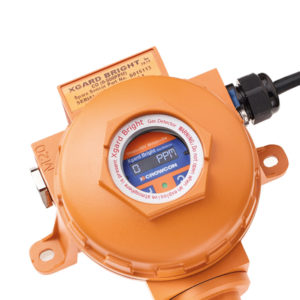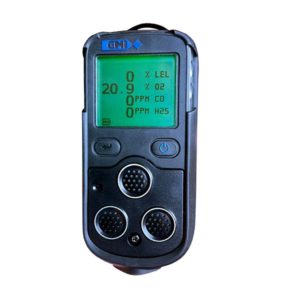Agriculture
Farming and agriculture applications face toxic gas risks, most notably from Hydrogen Sulphide (H2S). Slurry pit gases are the biggest challenge because the gas dangers are invisible and often odourless.
Poultry Sheds
Personal Safety
There are several typical activities such as laying down wood shavings for bedding, herding birds, brushing debris and manure out of sheds, and cleaning the poultry houses that generate airborne poultry dust. Poultry dust is capable of causing respiratory disease in humans.
Anaerobic Digestion
Area Monitoring
Most farms now have connecting AD plants because they potentially have a variety of feedstocks such as farm waste and excess slurry readily available which would otherwise be disposed of. AD systems produce biogas that can be used to generate heat and electricity.
The AD process in the production of biogas relies on early gas detection through carbon dioxide and methane sensing. A continuous area monitor should be installed close to the digesters and biogas storage tanks to reduce the risk of asphyxiation.
Grain Storage
Personal Safety
Grain silos treated with CO2 for pest control should never be entered during treatment or until the silo is sufficiently ventilated. To ensure the silo is safe to enter, personal gas detectors should be worn to detect hazardous gas at dangerous levels.
Bulk Material Flow
As grain flows from a storage silo, it’s critical that firstly, the silo doesn’t overflow and secondly, it maintains a steady flow without blockage occurring. Improve operations with our flow and level measurement monitors.
Slurry Pits
History shows that slurry pits have been fatal because of farmers being overcome by gas released from slurry during mixing.
Slurry gas is a mixture of gases including methane, carbon dioxide, hydrogen sulphide and ammonia, all produced by bacteria during the decomposition of slurry.
Slurry gas is heavier than air and during mixing will settle in a cloud over the top of the slurry – bending down into the gas cloud for even a few moments can cause unconsciousness.
Every farm hand or AD plant operator should wear a portable gas detector for the work in confined spaces and have access to training.
Talk with the Experts
Contact us - Our team of application specialists can assist you with system design, installation, maintenance, and repair. As a systems integrator, we provide end-to-end support to ensure your facility has a reliable and effective gas detection system in place.
Sign up for more information - For more information on protecting your staff from the dangers of gas leaks, sign up for our emails.
Case Study – Powered Air Respirators Keep Turkey Farmers Safe from Poultry Dust
a1-cbiss helped a poultry former choose the right respiratory equipment for himself and the staff on his farm to protect against respiratory issues caused by poultry dust.




